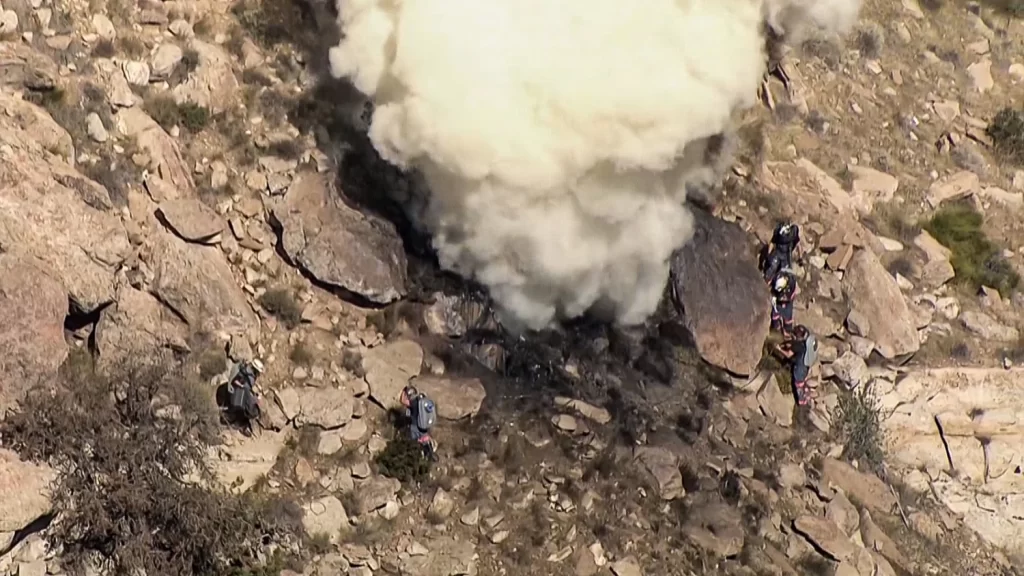BOSWELL – Plans for a substantial northern Somerset County deep mine have received the state’s approval. It’ll mean 100 jobs once the mine is fully operational, Corsa Coal officials said. “There will be some new hiring,” said Ben Gardner, Corsa’s vice president of engineering, noting that some of the workload would also be handled by existing mineworkers within the company.
Wilson Creek Energy, a Corsa Coal subsidiary, received a state permit enabling the company to mine more than 3,971 acres of mostly underground property in parts of Jenner and Conemaugh townships. The permit gives Wilson Creek the right to access 1.2 million tons of metallurgical coal yearly from a section of a Lower Kittanning seam that runs 300 feet below ground, on average, according to DEP documents. Gardner was unable to project how many new employees will be sought for the 100-employee operation, but indicated the company has plenty of time.
Given the depth of the coal and other site work needed, it will be at least 14 months before miners begin chipping away at the high-quality coal the company is targeting. The Somerset County region is one of just a few nationwide with seams of metallurgical bituminous coal, which is primarily used to support steelmaking. Demand for the product generally rises when the economy is on the upswing, and U.S. Energy Information reports show met-coal was selling at just under $200 per short ton, double the current price for the much more abundant steam coal.
More than 40 acres of surface area near the mine’s Keyser Road portal – or entrance – is also included in the permit, the DEP documents show. The mine entrance, as permitted by the state, is at 690 Keyser Road, just under a mile north of Boswell and several miles south of the village of Jerome. The access road is near Keyser Road’s intersection with state Route 601. Plans for the project have been under consideration for years, with public meetings held as far back as 2017 to enable area residents to stay informed and weigh in on the proposal. Several residents aired concerns the project could jeopardize their natural springs and wells they rely on for their homes and farms.
DEP officials responded that the mining company will have to follow strict environmental guidelines aimed at avoiding that possibility. That includes inventorying all water sources within the mine’s permitted boundary, and that any surface facilities built to support the operation must be 300 feet away from the nearest dwelling. Wilson Creek would have to cover the cost to replace their water system if issues occur.
Permit documents showed Wilson Creek must build state inspected and approved mine water pits that properly route the pollutant to treatment facilities once mining begins. Ongoing efforts must occur to monitor and protect Roaring Run, which would receive the treated water after it travels through a system of collection and sediment ponds.
“pH (levels) must be between 6.0 and 9.0 at all times,” the DEP wrote, noting that samples must also be taken during points when the Jenner Township discharges are occurring. The company must abide by those guidelines to avoid losing its NPDES permit, a requirement to operate a mine in Pennsylvania. DEP Regional Communications Manager Lauren Camarda said the company estimates coal would be removed from the mine for 15 years.
Corsa has several coal preparation plants nearby, including one north of Indian Lake and another in Stoney Creek Township north of Berlin. Both sites have CSX rail access, enabling coal to be loaded on rail cars for transport to buyers, Corsa’s website shows.
Metallurgical coal is primarily used to create the hard, high carbon fuel called coke that is a key component in the steelmaking process. Gardner said Corsa plans to sell the coal mostly to U.S. buyers for domestic production. A small percentage will likely be exported to other countries.
Corsa is publicly traded on the New York-based OTC market. The company did not identify its buyers, but its website notes that the rail lines allow easy access to Pittsburgh-area buyers. The Pittsburgh area is home to the nation’s largest coking plant, just south of the city in Clairton, and several working mills owned by companies nearby.
By: David Hurst









